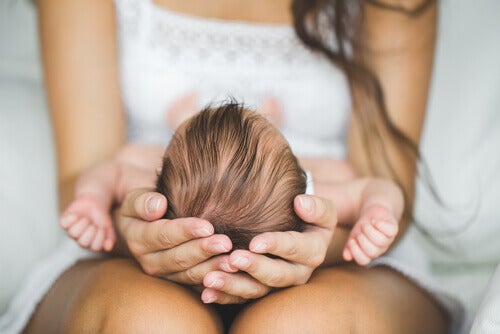Giving birth to a baby for the first time is a very important change for the new mom and dad, who will have to live with emotions encountered during the postpartum period, until the situation normalizes.
In this process, in addition to everything that represents the new stage of life in front of the dependent baby of his parents, the most important change in the postpartum is the one that does not see himself, it is the one that occurs within the mother. We mean the emotional and physical process of postpartum.
- During this period.
- Known as postmortality.
- The mother’s body regains balance.
- The physical part usually takes about 40 days.
- But lifestyle and partner recovery can take up to a year.
“How does it feel to be a father? This is one of the most difficult things, but in return it teaches the meaning of unconditional love. -Nicholas Sparks-
If during the nine months of pregnancy the mother-to-be has already experienced hormonal changes in her body and, therefore, her influence on emotions, during postpartum is no different, during this period the hormones change radically to contract the uterus and the breasts begin to produce milk.
These factors are indicators that postpartum women undergo significant changes in their endocrine system, which can cause intense changes in emotions during postpartum.
Hormones are also responsible for the reorientation of the world from the postpartum mother to her baby, prolactin and oxytocin produce a state of greater attention and focus on the baby, relativizing or ignoring other context stimuli outside the baby.
The mother will be anxious about her baby’s separation, as her feelings will be completely related to him, she will feel sensitive to everything that happens around her, feeling defeated by seemingly common situations, but for her, at that time, they are not normal.
On the other hand, there is a loss of sexual interest and other activities that were previously important, life will focus on requests for affection, breastfeeding and baby care.
In addition, we can add changes for nutritional wear from which the mother is gradually recovering, including lack of iron and, in some cases, iodine; changes in the intestines are also observed due to fluctuations in Serotonin levels; some other changes are:
All of this can lead to insecurity, disappointment, tiredness, irritability, lack of concentration, anxiety, fears, need to cry, stress, hypersensitivity and sometimes lead to postpartum depression.
In addition to all these changes in the mother, the father may feel displaced, not knowing very well where he belongs and what to do at all times; at the same time, he does not understand or recognize his partner, who does not know how. to help or support.
On the other hand, the family wants to help. Generally, the mother of the posterpera assumes the main support, which further moves the father, who tends to look for other functions to feel useful away from his partner.
Motherhood is the hardest job in the world, you become responsible for the physical, emotional and mental development of another human being.
It is important to know that the post specialty is a normal and temporary process that will allow us to adapt to our new life focused on the baby, for this it is essential to accept physical, social and emotional changes, normalize the process and overcome it. Together.
The body is wise and knows how to regain balance naturally; we only need a peaceful and supportive environment in our relationship with our partner in order to manage emotions in the postpartum period.

